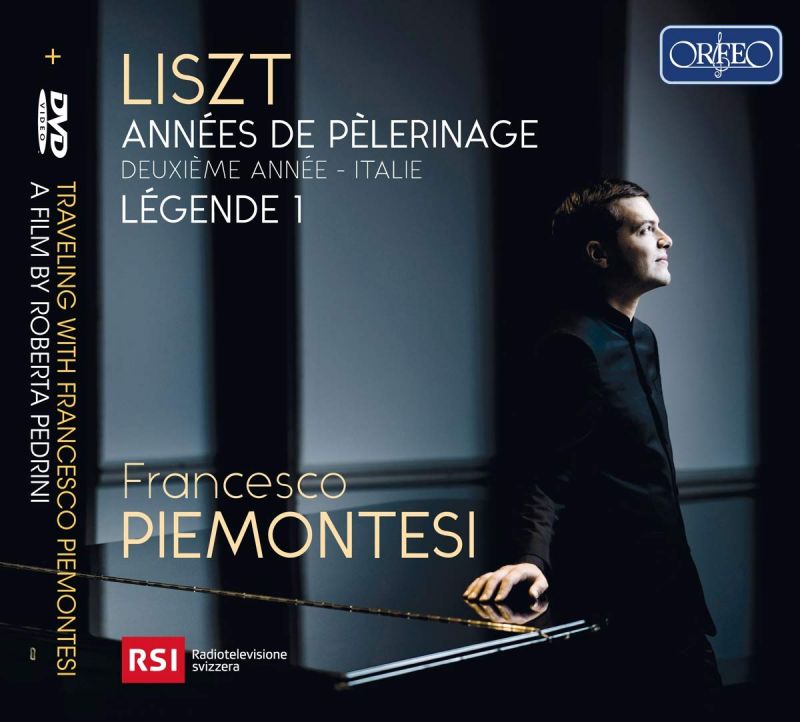LISZT Années de pèlerinage, Book 1 (Piemontesi)
View record and artist detailsRecord and Artist Details
Composer or Director: Franz Liszt
Genre:
Instrumental
Label: Orfeo
Magazine Review Date: 09/2019
Media Format: CD or Download
Media Runtime: 62
Mastering:
DDD
Catalogue Number: C982191

Tracks:
| Composition | Artist Credit |
|---|---|
| Années de pèlerinage année 2: Italie |
Franz Liszt, Composer
Francesco Piemontesi, Piano Franz Liszt, Composer |
Author: Michelle Assay
Like the first instalment of Francesco Piemontesi’s Pèlerinage project (8/18), his follow-up adds visuals to the mix, with a DVD documentary consisting of location-shot excerpts. I was hoping for a more artistic exploration of the relation between sight and sound in Roberta Pedrini’s film; instead she simply intersperses filmed piano-playing of each piece with short interludes that vary from a quick snap of Michelangelo’s work and Florence to an interview in which Piemontesi gives a brief but charming introduction to the ‘Dante Sonata’. Perhaps the best thing about the film is the chance to hear the sonnets of Petrarch read in Italian. The music of the words in the vernacular suggests that this may have determined Liszt’s responses as much as the meaning and subject matter.
On the CD, Piemontesi shows the same qualities of sensitivity and intelligence that come across in the film. But he does have a tendency to apply a coating of passion and exultation to almost everything – a thin coat, admittedly, for the most part, and one that at times actually helps to keep the piece alive. This is less than subtly applied in the Sonata. Here, compared to Daniel Barenboim, for instance, Piemontesi sounds emotionally monochrome and less alive to the nuances of the work’s dramatic unfolding.
Barenboim, and in particular Kathryn Stott, also lend the Petrarch Sonnets a greater degree of poetry and narrative quality, without ever descending into mannerism. Listen, for instance, to how Stott keeps the singing quality in Sonnet 47, even as she creates an oasis of near-timelessness. Compared to these and to Arcadi Volodos’s dazzling yet highly rhetorical account of the two opening numbers of the set, Piemontesi draws a more literal, straightforward picture. Volodos also brings superior individuality and variety of tone and texture to the first of the two Légendes. Given the voyage focus of the series, I wonder if the supplementary Venezia e Napoli might have made for a more convincing filler. Despite close recorded balance, the piano sound itself is pleasantly warm.
Explore the world’s largest classical music catalogue on Apple Music Classical.
Included with an Apple Music subscription. Download now.

Gramophone Digital Club
- Digital Edition
- Digital Archive
- Reviews Database
- Events & Offers
From £9.20 / month
Subscribe
Gramophone Club
- Print Edition
- Digital Edition
- Digital Archive
- Reviews Database
- Events & Offers
From £11.45 / month
Subscribe
If you are a library, university or other organisation that would be interested in an institutional subscription to Gramophone please click here for further information.






